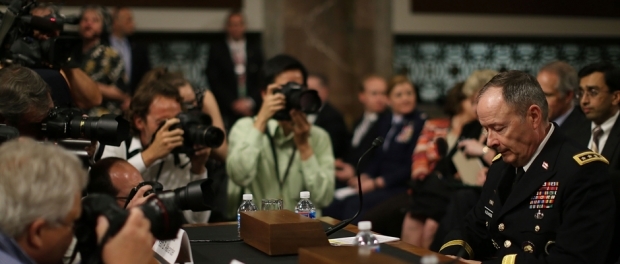Reports of U.S. gathering data on emails and phone calls have stoked fears of an over-reaching government spying on its citizens. Chinese artist Ai Weiwei worries that China will use the U.S. as an example to bolster its argument for surveillance on dissidents. After all, both governments argue that such surveillance is all for the common good. Isn’t the U.S. doing exactly what the Chinese government does: watching its citizenry as a way to maintain stability?
Discuss!





Comments
Tai Ming Cheung
The Chinese and U.S. approaches to surveillance and how each of their security apparatuses go about organizing and carrying out such activities are fundamentally different in nature. It might be useful to label them into two distinct models: the U.S. approach can be described as the democratic security state model and the Chinese version is the authoritarian surveillance state model.
There are at least three critical areas to compare these two models:
• Checks and Balances: In the democratic security model, the security apparatus (NSA, FBI, police etc) is subject to legislative and legal oversight—and occasionally media reporting—that provides for some measure of accountability. This is largely missing in the authoritarian surveillance model.
• What Constitutes a Threat: While the definitions of threats by governments are constantly evolving, ingeneral the authorities in the democratic security model take a targeted approach and focus on specific threats, of which terrorism and foreign espionage are some of the high priority areas at present. The authoritarian surveillance model takes an expansive catch-all view of what constitutes a threat that covers anything the authorities deem to challenge their authority.
• Balancing Privacy and State Intrusion: If we think about individual privacy and the state’s ability to monitor the private lives of its citizens on a spectrum, the U.S. would be on one side in which there are generally robust legal and regulatory safeguards on privacy and data protection, while in China there is very little notion of privacy and few, if any, limits on the state’s powers to intrude on its citizenry.
I do think, though, that the wide gap between the U.S. democratic and Chinese authoritarian approaches to domestic surveillance has narrowed since the 9/11 terrorist attacks in the U.S. Following this and the subsequent drawn-out war on terrorism, the U.S. approach has been adapted from a peacetime democratic security model to a wartime democratic security model in which security imperatives have compromised some of the checks and balances, there has been considerable threat inflation, and the privacy-state intrusion balance has weighed more in favor of state intrusion. But despite this more assertiveness of the state in watching over its domestic population in the U.S., it remains a fundamentally different from China where the authoritarian surveillance apparatus is all-powerful and acts unchecked and unbounded.
Andrew J. Nathan
In understanding the impact of the recent cyber-revelations on U.S.-China relations, it might be helpful to distinguish among three issues.
First is cyber-espionage. There’s no international norm forbidding espionage. Countries spy on each other all the time in multiple ways. Countries protect themselves from espionage as best they can by using their domestic criminal laws against anyone who is subject to them and by expelling spies who have diplomatic immunity. Presumably the same protect-thyself norms apply to the cyber version of this ancient activity.
Second is cyber-warfare. A basic principle of the modern laws of war is to not target civilians, so the laws of war will have to be modernized to take account of the new vulnerabilities created by societies’ dependence on electronic communications to run vast areas of civilian life. Military networks presumably remain fair game in warfare.
The third issue area is cyber-theft of intellectual property. I believe it’s this third area that is the focus of current U.S. complaints against China. Here again international norms have not caught up with the new technology, but presumably the existing international norms governing intellectual property rights can and will be extended to cover thefts of this kind.
Jeremy Goldkorn
If my name was Ahmed Quraishi instead of Jeremy Goldkorn, I’d feel safer in China no matter who was watching. But being a resident of and active commentator on China, I am personally more worried about the consequences of surveillance here. I don’t want to be watched by either the U.S. or Chinese governments, but since I live in China and use many American Internet services, I don’t really have a choice.